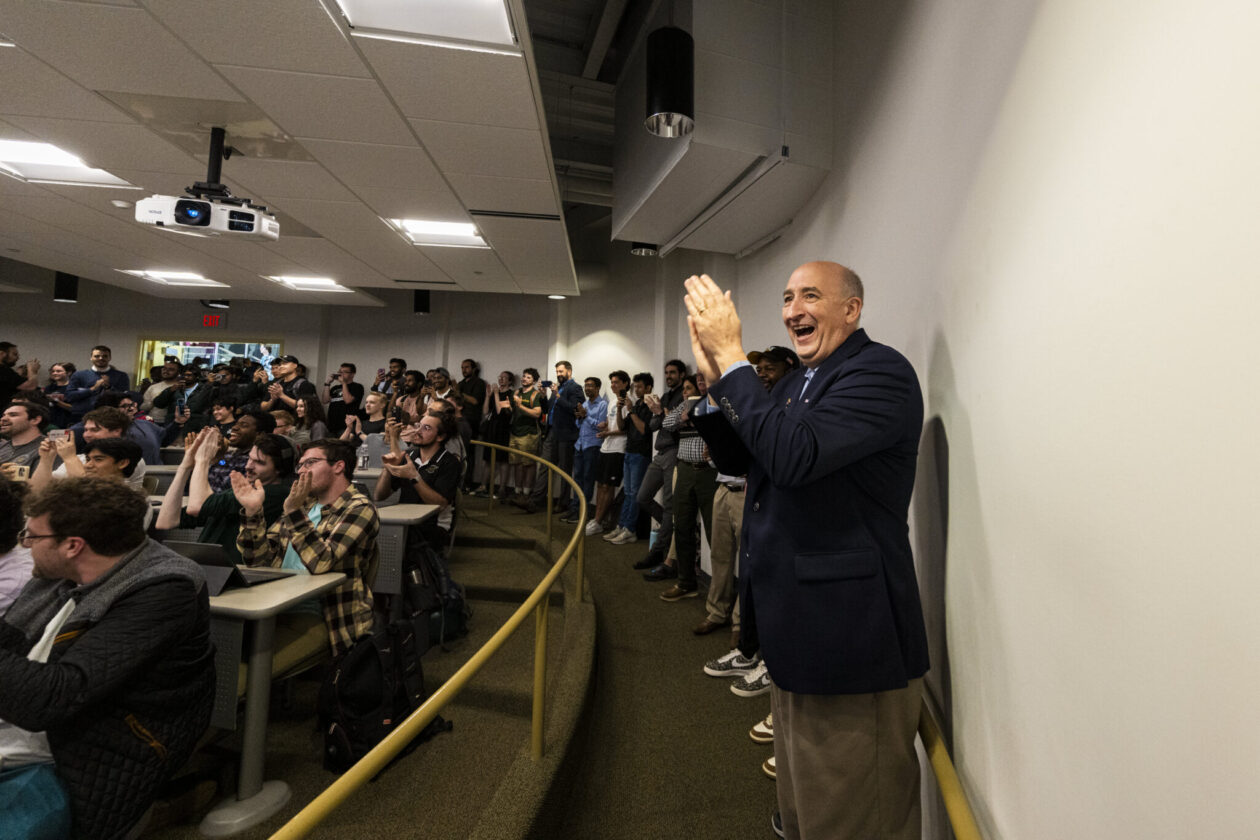Engineers Week: Q&A with Dr. David Bayless about becoming a professional engineer
Posted by Greg Edwards

Dr. David Bayless, front right, claps after the successful launch of a student-designed satellite into space. Photo by Michael Pierce/Missouri S&T. Michael Pierce/Missouri S&T
Dr. David Bayless is chair and professor of mechanical and aerospace engineering at Missouri S&T. In commemoration of National Engineers Week 2025, here is a Q&A with Bayless focused on the professional engineer credential.
What does it mean to be a professional engineer (PE)?
From a legal standpoint, it is a level of licensing by state boards to assure potential clients that you have met the standards to practice engineering in their state. To me, it is the pinnacle of engineering practice. It demonstrates to the world that you have the highest level of competence certified by both your training and your practice. It is also a mindset of always striving to be your best as an engineer.
Is this a credential engineers from all disciplines should pursue?
Not everyone needs it, but you don’t know if you will need it until you do. Of course, licensure is a must for most higher-level jobs in civil engineering, but for mechanical and electrical engineers, as well as many other disciplines, having a PE license is often a requirement if you work for an architectural and engineering firm or if you practice as a consultant.
What is the process like for becoming a PE in Missouri?
First, pass the Fundamentals of Engineering examination. It is best to take the exam either while in school or immediately after graduation. Then, most states require at least four years of professional practice as an engineer, and often that experience must be certified by a professional engineer. Finally, take and pass the Principles and Practice of Engineering exam.
How has being a PE influenced your approach to leadership and decision-making?
It strongly influences how I approach both my teaching and my role as department chair. It has set an internal expectation of excellence in not just all I try to do, but also what I expect from others.
What else do you think is important to note about being a PE?
Not everyone will need to be a PE for a successful career, but being one has not only opened doors for some really cool opportunities, but also given me a strong sense of professional pride that I would not miss for the world.
Thank you Dr. Bayless for discussing the merits of becoming a registered Professional Engineer and promoting it! Becoming a P.E. Should be a career goal for all our students particularly those in my field of structural engineering that will design and/or review and seal contract documents. Plus it also comes with a salary enhancement! 😉